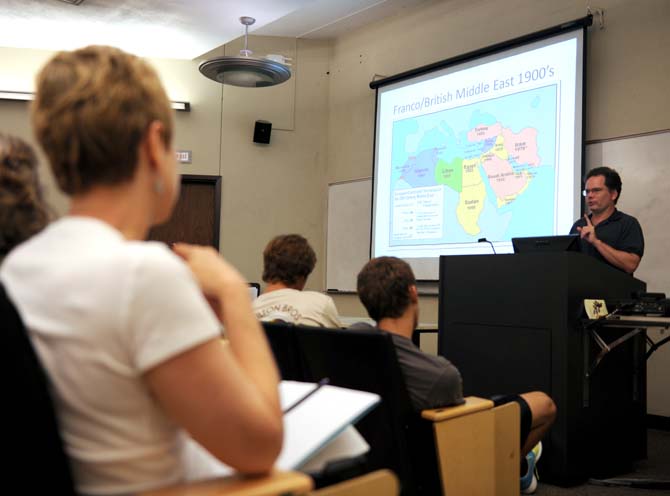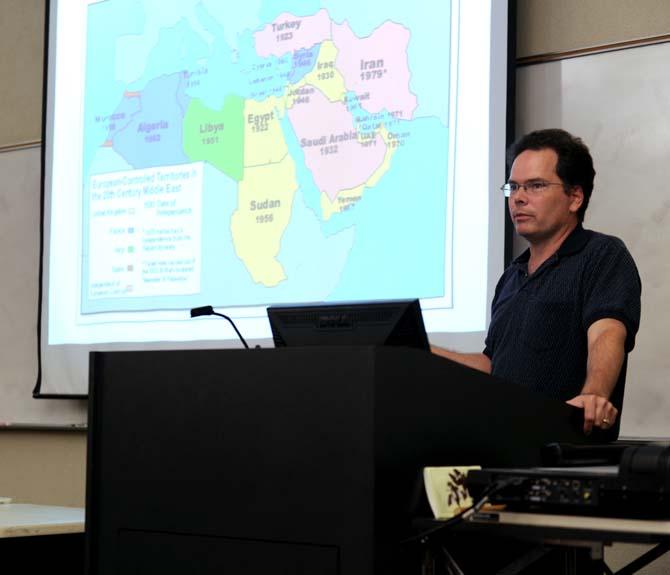As international leaders debate what action to take in Syria, University students and faculty members gathered together for their own panel discussion where, much like the politicians, no one could agree on what should be done.
Following Syrian President Bashar Al-Assad’s chemical attack that caused the death of nearly 1400 — a crime secretary of state John Kerry has confirmed to be true — President Obama threatened action in the war-torn country.
Student response was skeptical of the need of military action. While the whole world waits for Obama’s decision, political science associate professor Leonard Ray said the president must confer with Congress and others to determine the right move
“Tomorrow night President Obama will give a speech … and try to sell us on this,” Ray said. “Public opinion polls seem to show it is an uphill battle to gain support.”
Students said, in order to determine a course of action, the credibility of the information must be determined. There are varying reports from media outlets across the world that dispute whether or not Assad himself ordered the attacks or another organization operating within Syria is responsible, Ray said.
Political science senior Brencia Berry said wading through the conflicting reports and arriving at a conclusion is difficult.
“I have been watching things in Syria unfold for a year and a half and I read and hear everything going on but I am torn about what to do,” Berry said.
She said with more than 100,000 dead from the war, it feels like intervention is inevitable.
However, identifying U.S. motives for the intervention is another challenge according to Ray.
When one member of the audience asked if the end-goal of the U.S. was to secure any chemical weapons or stop the civil war, Ray’s answer dismissed both notions.
“I think the answer is neither,” Ray said. “What we are trying to do is to deter any future use of chemical weapons.”
There is no military solution the U.S. can implement that would solve the problems, he continued.
The warring sides in Syria would have to sit down and come to a compromise themselves and there is no such evidence to indicate that happening in the foreseeable future, Ray said.
Panel discusses the difficulties facing U.S. military action in Syria
September 9, 2013
LSU students and fellow faculty gather Mon. Sept. 9, 2013 in Howe Russell Hall to discuss the U.S. involvement in Syria with Leonard Ray, a University political science associate professor.






